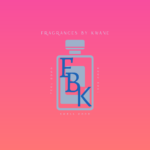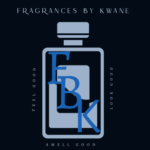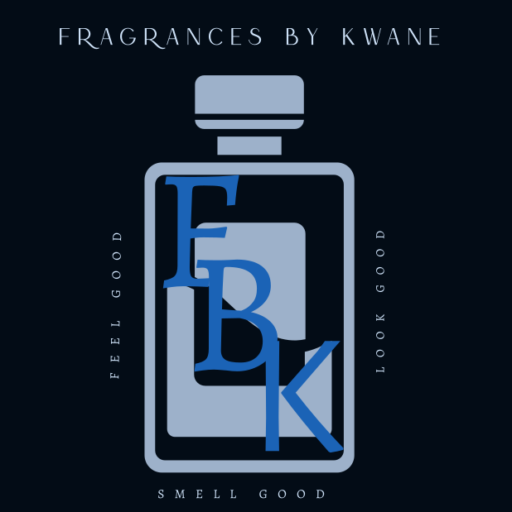Primitive perfumery began with burning of gums and resins for incense used in religious rites of ancient China, Palestine, and Egypt. Then scented plants were incorporated into animal and vegetable oils to anoint the body for ceremonies. By 3000 BC Egyptians were importing large quantities of Myrrh.
The Greek word “aromata” described incense, perfume, spices and aromatic medicines. By the 7th century BC, Athens had hundreds of perfume shops. 1st century AD Rome was going though about 2,800 tons of imported frankincense and 550 tons of myrrh annually. The Roman Emperor Nero in 54 AD spent the equivalent of $100,000 to scent just one party he gave. The spread of Islam in the 6th and 7 th centuries helped to expand he appreciation of fragrance. Mohammed’s favorite scent was probably camphire (henna).
Arabian physician, Avicenna (Ibn-Sina) (980-1037) improved on the process of distilling oil from the petals of roses. Rose water was the first modern perfume. The first alcoholic perfume, Hungary Water was originally concocted in 1370 for Elizabeth of Hungary. During the Middle Ages, Crusaders brought the knowledge of perfumery back to Europe form the East and after 1500 Paris, France was the major center of perfume making
The Italian influence swept through France helped along by Caterina de Medici’s (1519 – 1589) marriage to France’s Prince, later to be King Henri II. Her alchemist accompanied her and set up shop in Paris. French towns, Montpellier and Grasse had established themselves as centers of fragrance providing scents for the popular perfumed gloves that were all he high style.
4711 – Reportedly the original Eau de Cologne developed in 1792 in Koln, Germany was based on a formula made by a French émigré friar. The Carthusian monk was a member of a contemplative order of the Roman Catholic Church, founded during the 11th century by Saint Bruno. Because of religious persecution, he had taken refuge with one of Cologne’s wealthiest families, the Mulhenses. The holy man gave the secret recipe for “Miracle Water” (because of its supposed healing powers) to their son Wilhelm as a wedding gift.
Wilhelm whipped up a batch and was so impressed (and so were his friends) by the refreshing citrus tonic that he set up shop in the family home and started taking orders. The scent got its name from the address number of the Mulhens family perfume shop. Cologne is the French name for the German city, and during the 1974 French occupation of Cologne, Napoleon used to bathe in a dilution of this scent. The French introduced it to the rest of the world and it’s still a popular scent today.
Founded in France in 1810, the Pinaud brand and its Clubman line of men’s toiletries can be found in virtually every barber shop and men’s club across the Unites States.
1867 the Paris International Exhibition exhibited perfumes and soaps apart form the pharmacy section thus establishing an independent commercial area for “cosmetics”
1868 was the first production of a synthetic fragrance, coumarin (which smells like new-mown hay). Perfumer Jean-Francois Houbigant was the first one to use a synthetic commercially. Synthetic fragrance production introduced musk, vanilla and violet odors 20 years later.
Chanel No. 5, the first expensively produced perfume using artificial scents is marketed in 1924, and yes there were bottles of samples with other numbers, but Coco Chanel liked the fifth bottle. Coincidentally, her couture collection was scheduled for presentation on the fifth day of the fifth month. Interpreting this as a good omen she used the number on the sample bottle as the name. It was the popularity of Chanel No. 5 that set off the designer fragrance industry of today.
Guerlain first produced Shalimar, an eastern style scent, in 1925
Joy, “the most expensive perfume in the world” was blended in 1926 for Patou.
Old Spice – Introduced in 1937 by William Lightfoot Schultz, a soap manufacturer in New York. It was initially for women, but changed to a man’s product the following year.
Aramis – the first men’s scent sold in department stores in 1964
Perfume and Attraction
Throughout history, perfume has been used to attract the opposite sex.
Cleopatra used jasmine discount perfume to attract Mark Anthony. Even the sails of her ships were perfumed with jasmine, so that her signature scent would waft to the shores, heralding her arrival.
Maidens then and now use musk and heavy perfume to attract their men. It makes sense though. Pheromones that are naturally produced by the body play a part in sexual attraction. Perfumes mimic the effect pheromones have on red blooded men.
Fragrances like rose relax a person. The perfume creates an atmosphere and state of mind conducive to romance. Perfume plays a part in setting a pleasant atmosphere where one can relax, and enjoy such sensual pleasure.
How should you wear perfume?
The right way to wear perfume is to layer it.
That means:
– Bathe with a perfumed soap or shower gel.
– Smooth on the perfumed lotion
– Add a drop of perfume to your cleavage.
– If your favourite perfume does not have a matching soap or lotion, you can make your own perfumed shower gel and lotion.
– Just buy some unscented shower gel and unscented lotion.
– Before your bath or shower
– Pour enough shower gel for your bath or shower into 1 small bowl.
– Add 1 drop of perfume to it.
– Pour enough body lotion for 1 application into another small bowl.
– Add 1 drop of perfume to it.
– Use that newly perfumed shower gel for your bath or shower.
– Slather on the newly perfumed lotion
– Put 1 drop of perfume on your cleavage.
That’s all there is to it. For an unfair advantage, you might want to try perfume with pheromones.
Cologne tips for Men
How can I make my bottle of cologne last longer?
If you want to maximize your cologne’s lifespan and preserve its scent, make sure to keep your bottle in a drawer, a medicine cabinet, or cupboard — anywhere so long as it’s away from direct sunlight or extreme temperatures. As well, it helps to store your cologne in a cool, dry place.
How should I apply cologne?
It is recommended that you apply cologne on pulse points such as your wrists, behind the ears, and the base of your throat. Your pulse points generate heat, which will accentuate the scent. Since fragrance rises, you should include the back of your knees and your ankles as application spots, and then work your way up. Applying cologne to your clothes will make the scent disappear after very little time (and may even stain them).
Spray the cologne onto any of these locations by holding the bottle at a distance of 15 centimeters and allow it to dry on its own — do not rub your skin after application as this will alter the smell, even if you’re dabbing it on rather than spraying.
How can I make my cologne’s scent last longer?
A great way to maximize your cologne’s scent is by “layering” the fragrance; if possible, use the same brand of shower gel, body lotion or after-shave, before applying your cologne. Speaking of after-shave, if you want to apply an after-shave whose scent differs from your cologne’s fragrance, I recommend using an unscented after-shave or balm so as not to distort your cologne’s scent.
Note: Eau de Toilette spray should last 2 to 4 hours, while Eau de Cologne should last approximately 2 hours.
How do I know if I’m wearing too much cologne?
Keep in mind that cologne should only be sensed by those who are within arm’s length of you; you’ll know if you’re wearing too much if those at a greater distance can smell you as well.
Why does cologne smell differently on different people?
The way your cologne smells on you has to do with your body’s chemistry, which depends greatly on your diet. Not only can your diet affect the way a fragrance smells, but it can also have an effect on how long the cologne lasts. A high fat or spicy diet can even intensify a discount fragrance.
Your skin type also plays a role in the intensity of cologne. For example, oily skin makes a fragrance more intense, and tends to retain the cologne’s scent for a longer amount of time than dry skin.
Whether you just can’t shake your trademark scent or are ready to trade in your familiar fragrance for something more refreshing, your application technique and storing method are essential if you want to make sure you smell as great as you can.
Give some of the six discount colognes mentioned a try — for weekend days, the office or nighttime affairs — and women will wonder who the fellow leaving a trace of sex appeal is.



